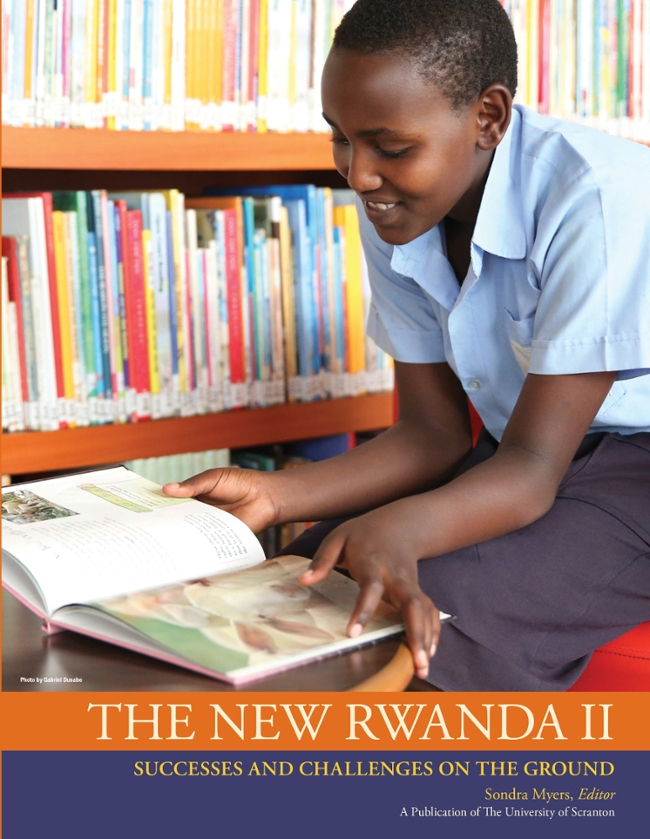Book on Rwanda Highlights Success Stories

Sondra Myers, senior fellow for international, civic and cultural projects and the director of the Schemel Forum, has traveled to Rwanda nine times in the past six years, and she has seen the progress that smallAfrican nation has made in that period. The gains the country has made in education, health care, civic life, and reconciliation after the 1994 genocide against the Tutsi are the focus of a new book Myers has edited.
“The New Rwanda II: Successes and Challenges on the Ground” – a collection of essays – was published this summer by The University of Scranton. Myers launched the book in Kigali, Rwanda’s capital, in July. It is a sequel to a book she created in 2010, “The New Rwanda: Prosperity and the Public Good,” which grew out of a roundtable discussion on the role of universities in strengthening democracy and civic engagement.
The first book has been used widely for public discussion in Rwanda over the past four years. It was translated into Kinyarwanda, the country’s natural language, and is used in Rwandan embassies around the world.
The success stories that Myers saw in return visits to Rwanda inspired her to write the sequel. In the book’s forward, she writes: “The can-do spirit and the passion for progress have become increasingly evident each time I’m in the country. There is a steady rhythm, a heartbeat that keeps the nation moving along, notwithstanding enormous challenges. Employing a combination of tradition and innovation, Rwandans are shaping their future.”
The construction of a modern library is one of the many important developments of the past few years. It is represents both success as well as a great challenge.
“People in higher education in Rwanda want to encourage more of a reading culture,” Myers said.
Myers writes in her book that: “It is clear that Rwanda needs to make a leap into the 21rst century so that its citizens can become part of the global community. We are a knowledge-based planet and it is critically important for Rwandans to know what is happening, when and where and why, as they determine their own place in the world, exchange goods and ideas and skills with others, and ensure that they will be integrated into the global community as equals. That requires the development of a reading culture.”
“The New Rwanda II” is divided into sections about Rwandan traditions, culture and mindset; success stories; challenges; and reflections from both foreign observers and young Rwandans.






